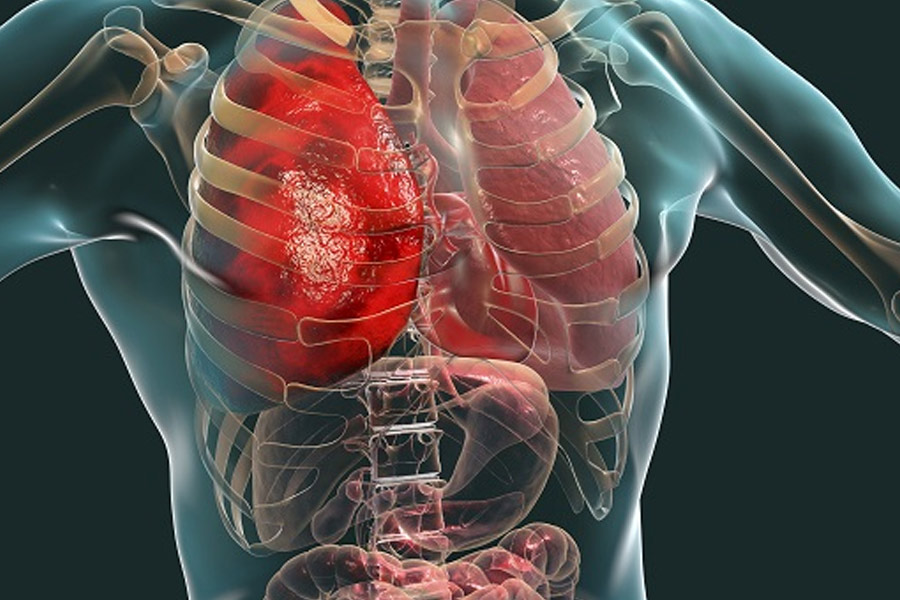
The Indian film industry recently mourned the loss of esteemed producer Dhirajlal Shah, who passed away due to multi-organ failure on March 11. Shah, known for producing iconic films like "Krishna" and "The Hero: Love Story Of A Spy," battled various health complications before succumbing to this condition. His passing highlights the critical nature of organ failure, a condition that can affect anyone, regardless of age or status.
Table of Content:-
What is Organ Failure?
Organ failure occurs when one or more vital organs in the body cease to function properly. This can happen gradually over time (chronic) or suddenly (acute), and it requires immediate medical attention. Vital organs, such as the liver, kidneys, heart, lungs, and brain, are essential for sustaining life, and any failure in these organs can have serious consequences.

Causes of Organ Failure
As per Dr Manish Itolikar, Consultant Physician, Fortis Hospital, Mulund, organ failure can be caused by a variety of factors, including:
- Chronic Diseases: Diseases like liver or kidney diseases can gradually damage organs over time, leading to failure.
- Traumatic Injury: Severe injuries to organs can result in acute organ failure or permanent damage that affects organ function.
- Toxic Injury: Exposure to toxins, either from the environment or substances like drugs or alcohol, can damage organs and lead to failure.
- Loss of Blood/Oxygen Supply: Ischemia, or a lack of blood supply, can cause organ damage or failure if not corrected promptly.
Also Read: Star Trek Fame William Shatner Opens Up About Stage 4 Melanoma Diagnosis; Symptoms To Look Out For
Types of Organ Failure
- Liver Failure: The liver performs numerous functions, including filtering toxins from the blood. Liver failure can be acute or chronic, often caused by chronic liver diseases like hepatitis or fatty liver disease.
- Kidney Failure: The kidneys remove waste from the blood and regulate fluid balance. Chronic kidney diseases like glomerulonephritis or acute conditions like kidney infections can lead to kidney failure.
- Heart Failure: The heart pumps oxygen-rich blood to the body's tissues. Acute heart failure can be sudden, while chronic heart failure progresses over time, often due to conditions like coronary artery disease.
- Lung Failure: The lungs are part of the respiratory system and are responsible for oxygenating the blood. Respiratory failure can be acute or chronic, affecting the body's ability to breathe.
- Brain Failure: The brain controls all bodily functions and can suffer from degenerative diseases or acute injuries that lead to brain failure.
Symptoms and Diagnosis
Symptoms of organ failure vary depending on the affected organ but may include weakness, fatigue, drowsiness, confusion, loss of appetite, and swelling. Diagnosis involves various tests, including blood tests, imaging scans, and organ function tests, to assess the extent of organ damage and determine the underlying cause.
Treatment and Management
Treatment for organ failure depends on the severity and cause of the condition. For acute organ failure, supportive care, such as IV fluids, antibiotics, and oxygen therapy, may be necessary. In some cases, organ transplantation may be required to replace a failed organ.
Also Read: Ileana D'Cruz Opens Up About Postpartum Depression; Here’s What It Is
Outlook and Prognosis
The outlook for organ failure depends on several factors, including the type of organ affected, the extent of damage, and the patient's overall health. While some organs can recover with treatment, others may require ongoing management or transplantation. Early diagnosis and prompt treatment are essential for improving outcomes in organ failure cases.
Bottomline
In conclusion, organ failure is a serious condition that requires immediate medical attention. Understanding the causes, symptoms, and treatment options can help individuals recognize the signs of organ failure and seek appropriate care. The passing of Dhirajlal Shah serves as a reminder of the importance of organ health and the impact of organ failure on individuals and their loved ones.
Also watch this video
How we keep this article up to date:
We work with experts and keep a close eye on the latest in health and wellness. Whenever there is a new research or helpful information, we update our articles with accurate and useful advice.
Current Version